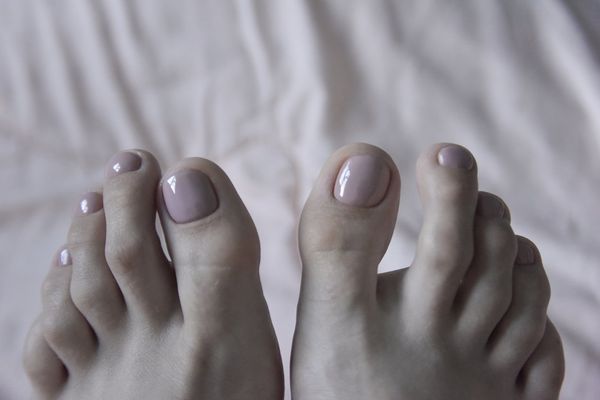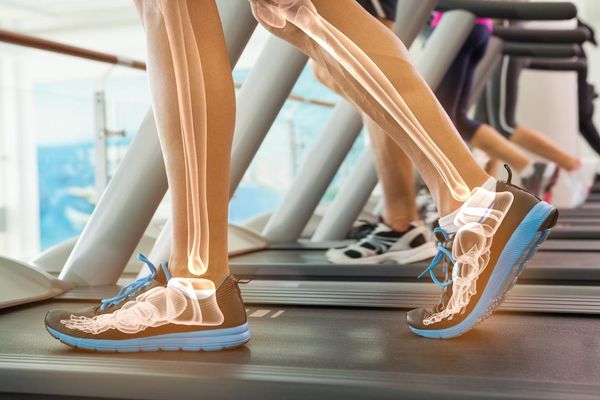
WEDNESDAY, Oct. 19, 2016 (HealthDay News)—Marijuana may be bad to the bone, a new Scottish study suggests.
People who are very heavy users of pot have more than twice the risk of suffering a broken bone compared to people who only smoke tobacco cigarettes, the study found.
Heavy pot users also had lower bone density compared to cigarette smokers, the researchers said.
"The take-home point for patients is relatively clear: heavy marijuana use does not promote bone health," said Dr. Matthew Hepinstall. He's an orthopaedic surgeon at the Lenox Hill Hospital Center for Joint Preservation and Reconstruction in New York City.
Due to the study's design, the researchers said, they could not prove a cause-and-effect relationship between pot smoking and bone density. However, they did take into account a number of other factors that could affect bone health, such as age, gender, weight, physical activity levels, calcium intake and alcohol consumption.
The study included 170 regular marijuana users and a control group of 114 cigarette smokers. The average age of heavy pot users was 40 years old. The average age of the cigarette smokers was 49.
From the outset, the researchers defined heavy marijuana users as those who reported smoking cannabis on at least 5,000 occasions in their lifetime. However, the average heavy cannabis user in the study reported using the drug more than 47,000 times, the researchers noted.
For someone who has used marijuana daily for 25 years, that means smoking pot on average five times a day.
The research team used a specialized X-ray technique to measure bone density. The study authors also reviewed the participants' medical histories for past fractures as well as other factors that required consideration.
"Our research has shown that heavy users of cannabis have quite a large reduction in bone density compared with non-users, and there is a real concern that this may put them at increased risk of developing osteoporosis and fractures later in life," said lead researcher Stuart Ralston. He's a professor with the University of Edinburgh's Center for Genomic and Experimental Medicine.
Moderate marijuana use—defined as an average of about 1,000 times during a lifetime—didn't appear to have any effect on bone health, the researchers reported in a university news release.
"Only the heavy users are showing these effects, and they are relatively small," said Mitch Earleywine, a professor of psychology at the State University of New York at Albany and an advisory board member for NORML, a nonprofit group that advocates the legalization of marijuana.
"I would emphasize that in a sample like this, 'very heavy cannabis use across the lifetime' might very well be serving as a proxy for unmeasured dietary and exercise contributors to bone density," Earleywine added.
"As the authors would agree, an independent replication in another data set would be very important. But, the message that we should all eat right and take care of ourselves is undoubtedly a good one. Cannabis users and everyone else should remain attentive to calcium sources and appropriate exercise throughout the life span," he said.
Animal studies previously have shown that marijuana can influence bone health, due to the drug's effects on cannabinoid receptors in the brain, said Dr. Mone Zaidi. He is a professor of medicine, endocrinology, diabetes and bone disease with the Icahn School of Medicine at Mount Sinai in New York City.
Bones are in a constant state of growth, with new bone being created to replace old bone that is broken down and removed, Zaidi said.
Marijuana appears to impair the cells that build new bone, which are called osteoblasts, he said.
"Basically, the osteoblast cannot effectively lay down good bone in these individuals," Zaidi said. "There's bone removal, but not as much bone formation to cover that removal, and that's why there's bone loss."
While this observational study appears to support earlier animal research, Zaidi said a more extended clinical study is needed to confirm a direct cause-and-effect link between pot use and bone health in people.
In the meantime, heavy pot users should consider talking with their doctor about these findings, and possibly undergo a bone density measurement to see if they're at risk for osteoporosis or fractures, Zaidi said.
The study, funded by Arthritis Research UK, appeared recently in the American Journal of Medicine.
SOURCES: Matthew Hepinstall, M.D., orthopaedic surgeon, Lenox Hill Hospital Center for Joint Preservation and Reconstruction, New York City; Mitch Earleywine, Ph.D., professor of psychology, State University of New York at Albany, and advisory board member, NORML; Mone Zaidi, M.D., Ph.D., professor of medicine, endocrinology, diabetes and bone disease, Icahn School of Medicine at Mount Sinai, New York City; University of Edinburgh, news release, Oct. 12, 2016; Sept. 1, 2016, American Journal of Medicine
Copyright © 2016 HealthDay. All rights reserved.







